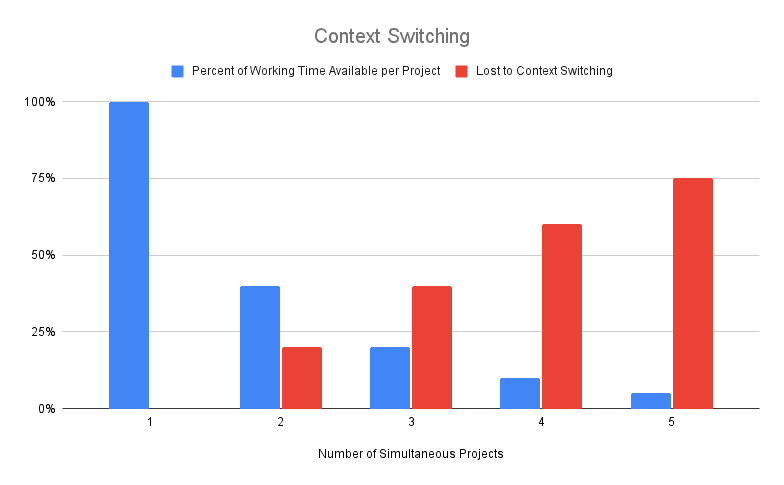When it comes to learning, people are often fall into two groups: the “I don’t have time” group and the “spare moment optimisation” group. The former is usually just an excuse for not taking action, which I won’t discuss in this article. The latter, however, is quite interesting.
Some people love sharing how they cram learning into every spare moment – reading on 2 × 1.5-hour commute, listening to podcasts at work, absorbing information while cooking or exercising and reading before bed. I used to be like this too. But now, I prefer a different approach: instead of optimising every bit of spare moment, why not elimite the spare moment at all?
Multitasking sound efficient, but it leads to constant context switching. Even if you think you can handle two things simultaneously, your brain can’t fully focus on both. Remember how many times you’ve had to rewind a podcast while working on something that requires deep thinking. It’s better to concentrate on one thing at a time.

One of my favourite graphs of all time
Constant consumption can be addictive, creating a cycle of always needing more. I love listening to podcasts. If I’m interested in a particular topic, I find the host’s podcast channel and listen from the very first episode all the way to the latest one – non-stop. Two years ago, I spent a couple of months listening to over 200 episodes. When I was close to finishing, I felt anxious because I wasn’t sure what to listen to next.
Furthermore, you can’t keep consuming without processing and producing output. You’ve read 10 books about Go – great. But have you written a single program in Go? You’ve read 10 books about productivity. Have you applied any advice from them to improve your lifestyle?
Take time to sit down, focus, and apply what you’ve learned. Simply consuming information without action is a wasting of time. You can’t achieve this during the spare moments.
Now, I don’t listen to podcasts while walking down the street or doing the groceries. Instead, I leave “empty spaces.” These moments allow me to observe my surroundings and serve as my meditation time. I reserve podcasts for mechanical activities like cooking and workout. Most of my recent articles actually have been drafted during my walking meditation.
As for long commutes, consider liver closer to work to cut down your commute time to 2 × 15 minutes. That way, you’d gain two hours of free time to read. Having two hours of undistracted input is far more efficient. Plus, eliminating long commute times also reduces emotional drain. Even if you can’t move to the nearest place due to high rent, cutting down a draining 40-minute commute means you now have 40 minutes of highly effective, focused time.
Debunk the “spare moment optimisation” myth. Replan your routine. Do one thing at a time.
